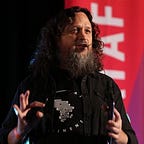Africa’s first digital journalism training platform launches
From data analysis to digital security: MOOC offers free hands-on courses
The news cycle is relentless: it doesn’t allow for journalists to take weeks off to learn new skills.
That’s why Code for Africa, with support from Google News Lab and the World Bank’s Global Media Development Programme, have launched a Massive Open Online Course (MOOC) specifically designed for African journalists.
The MOOC is free of charge, and launches with 47 lessons created by some of the world’s leading digital journalism experts. Structured around six initial courses, the lessons start with basic numeracy and continue to advanced subjects such as mapmaking and video production. The lessons are designed to help to speed up news gathering processes; improve journalists’ ability to check facts quickly; and provide the background necessary to produce charts, graphics and content for social sharing. Additional lessons offering new techniques or increasingly advanced skills will be added on a regular basis.
The initiative is designed to address the challenges highlighted in the State of Technology in Global Newsrooms survey by the International Center for Journalists, which confirms that only half of new hires in newsrooms in sub-Saharan Africa have any experience with digital news tools.
Lessons therefore include concise tipsheets and practical exercises using Africa-specific data or scenarios for journalists to immediately try out new skills. Participants can tailor courses to their most pressing needs, by mixing and matching modules. Journalists who need help fast, while on deadline, are able to learn the exact tool they need in minutes.
The initiative is run as an academy, underpinned by CfA’s award-winning StoryLab journalism laboratory, and has already signed-up 3,700 students while running a series of pilot MOOC courses over the past four months. The academy also hosts monthly public workshops in 12 hub cities across the continent, in partnership with local Hacks/Hackers chapters, and offers additional seminars at 29 partner newsrooms. More than 2,850 journalists have been trained at the events.
Matt Cooke, the Head of Partnerships & Training at Google News Lab says, “Since announcing our partnership with Code for Africa last summer, almost 3,000 journalists in 12 major cities have received training on digital tools in person. With the launch of this online course we hope to empower journalists right across Africa to learn at their own pace, dive deeper and discover a range of tools that can help them produce cutting-edge and compelling stories.”
The academy has achieved some notable milestones. Mwananchi in Tanzania established the country’s first data journalism desk after journalists there underwent training by the academy. In Nigeria, a Punch team trained by the academy produced the Shifting Sands exposé on illegal sand dredging that combined the power of data journalism with the visual impact of drone footage and satellite images to produce the publication’s most successful digital story.
When the academy launched, it aimed to forge five university partners: it currently has 12 across Africa, with more to come. Three of these universities have incorporated the academy’s curriculum into their journalism courses.
Explore the courses and lessons here.
Ready to be part of the digital revolution in journalism? Register here.
THE PARTNERS
Code for Africa (CfA) is the continent’s largest federation of data journalism and civic technology laboratories, with labs in four countries and affiliates in a further six countries. CfA manages the $1m/year innovateAFRICA.fund and $500,000/year impactAFRICA.fund, as well as key digital democracy resources such as the openAFRICA.net data portal and the GotToVote.cc election toolkit. CfA’s labs also incubate a series of trendsetting initiatives, including the PesaCheck fact-checking initiative in East Africa, the continental africanDRONE network, and the African Network of Centres for Investigative Reporting (ANCIR) that spearheaded Panama Papers probes across the continent. CfA is an initiative of the International Center for Journalists (ICFJ).
Google News Lab empowers the creation of media that improves people’s lives. It’s mission is to collaborate with journalists and entrepreneurs everywhere to build the future of media with Google. It does this through product partnerships, media trainings, and programs that foster the development of the news industry as a whole. Google began its support for digital and data journalism in Africa in 2010 through intensive workshops and continues to offer newsroom-targeted trainings. It also supported innovateAFRICA’s predecessor, the African News Innovation Challenge, in 2012.
The World Bank Global Media Development Programme helps the media leverage digital technologies to strengthen its role as a driver of good governance. In Africa, this has included support for data-driven journalism training starting in 2011, as part of efforts to improve the media’s analytical capacity. The World Bank also works with African governments to help make data for decision making on development and economic issues more easily available to citizens and the media. The World Bank’s support has included co-funding for the SudanData.org to build statistical capacity and data literacy amongst journalists, as well as support for the HURUmap initiative to make census and demographic data more easily available to African newsrooms.
